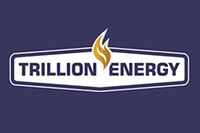The P5+1 world powers have reached a landmark deal with Iran about the future of its nuclear programs. If passed, the deal will also affect the oil price.
After a lengthy stretch of negotiations, the P5+1 world powers have reached a landmark deal with Iran about the future of its nuclear programs. The agreement could reshape the global oil market if it goes through.
Unsurprisingly, the deal has met with a fair amount of opposition. However, US President Barack Obama told reporters at the White House that if it is not put it into effect the likelihood of war in the Middle East will increase; he has urged Congress to support the decision.
If passed, the deal will impose various restrictions on Iran in a bid to create cooperation between the the Islamic Republic and the rest of the world. It is essentially aimed at stopping Iran from acquiring nuclear weapons, while at the same time easing international sanctions against the country. It will reduce the number of Iranian centrifuges by two-thirds and place bans on enrichment in key facilities, while capping uranium enrichment at 3.67 percent and limiting stockpiles of the energy source to 300 kilograms for 15 years, a 98-percent reduction.
The deal will also see seven UN resolutions against Iran be lifted, though a UN weapons embargo will remain in place for the next five years; a ban on buying missile technology will last for eight years. The UN Security Council will likely vote on the deal next week.
Iran nuclear deal’s impact on the oil space
While the monumental agreement is expected to help ease geopolitical challenges around the world, its implications for the oil market are also significant. According to Iran’s oil minister, Bijan Namdar Zanganeh, the country could increase its exports by 500,000 barrels a day as soon as the sanctions are lifted and could increase its output by an additional 500,000 barrels daily in the next six months. However, Goldman Sachs Group (NYSE:GS) told Bloomberg that adding 500,000 barrels will take roughly a year because Iran will have to first demonstrate its compliance with the deal and work on reviving wells.
Naturally, the oil price reacted to the deal when it was announced Tuesday, first falling by 2.3 percent, to $50.98 a barrel. However, the price recovered by the end of day, settling 1.6 percent higher, at $53.04 a barrel. Analysts told CNBC that the reason for the swing was that market participants realized that Iranian oil won’t have a chance to flood the market any time soon.
“There isn’t going to be this great flood of pent-up supply hitting the market and it looks as if the process will be far more gradual than people expected,” Neil Atkinson, head of analysis at Lloyd’s List Intelligence, told the publication.
Still, it’s worth noting that Iran’s crude oil reserves sit at approximately 157.8 billion barrels, which would be enough to supply China for more than 40 years, according to Bloomberg.
Return to OPEC
The deal will also see Iran return to the Organization of the Petroleum Exporting Countries (OPEC), and that is causing some concern amongst the other 11 members. The group has been focusing on defending its market share by increasing production, and has already exceeded its self-imposed limit of 30 million barrels per day.
With Iranian oil coming into the mix, there will be an increase in competition amongst OPEC members for Asian customers, and Iran’s new freedom may put pressure on producers with higher costs, as per Bloomberg.
The news may even spark an extraordinary OPEC meeting, Algeria’s oil minister, Salah Khabri, told state-run Algeria Press Service; if that happens, it will be the first emergency meeting since 2008. Still, officials from the Persian Gulf monarchies told The Wall Street Journal that it is too early to say what effect Iran’s oil may have on the market.
“This is still early to talk about what OPEC can do to accommodate Iran or what will happen to prices,” a Persian Gulf monarchy official said. “You also have to remember that we still have to wait and see if Iran can actually follow this agreement and if they can up their production as fast as they claim.”
Reuters reported that Gulf OPEC delegates said the organization will likely keep its oil output steady for the time being and continue to defend its market share; however, they expect that 2016 will be a tough year once sanctions against Iran are lifted. The group is optimistic that demand will be higher next year, and anticipates an increase of 1.34 million barrels per day in 2016.
While it is still too early to know where the decision will take the oil price, Goldman told the International Business Times that the deal has created a downside risk for the oil price. That said, the firm recognizes that the timeline will have no impact on its forecast for 2015; it sees the Brent crude oil price averaging $58 per barrel, with US crude averaging $52.
Securities Disclosure: I, Kristen Moran, hold no direct investment interest in any company mentioned in this article.





